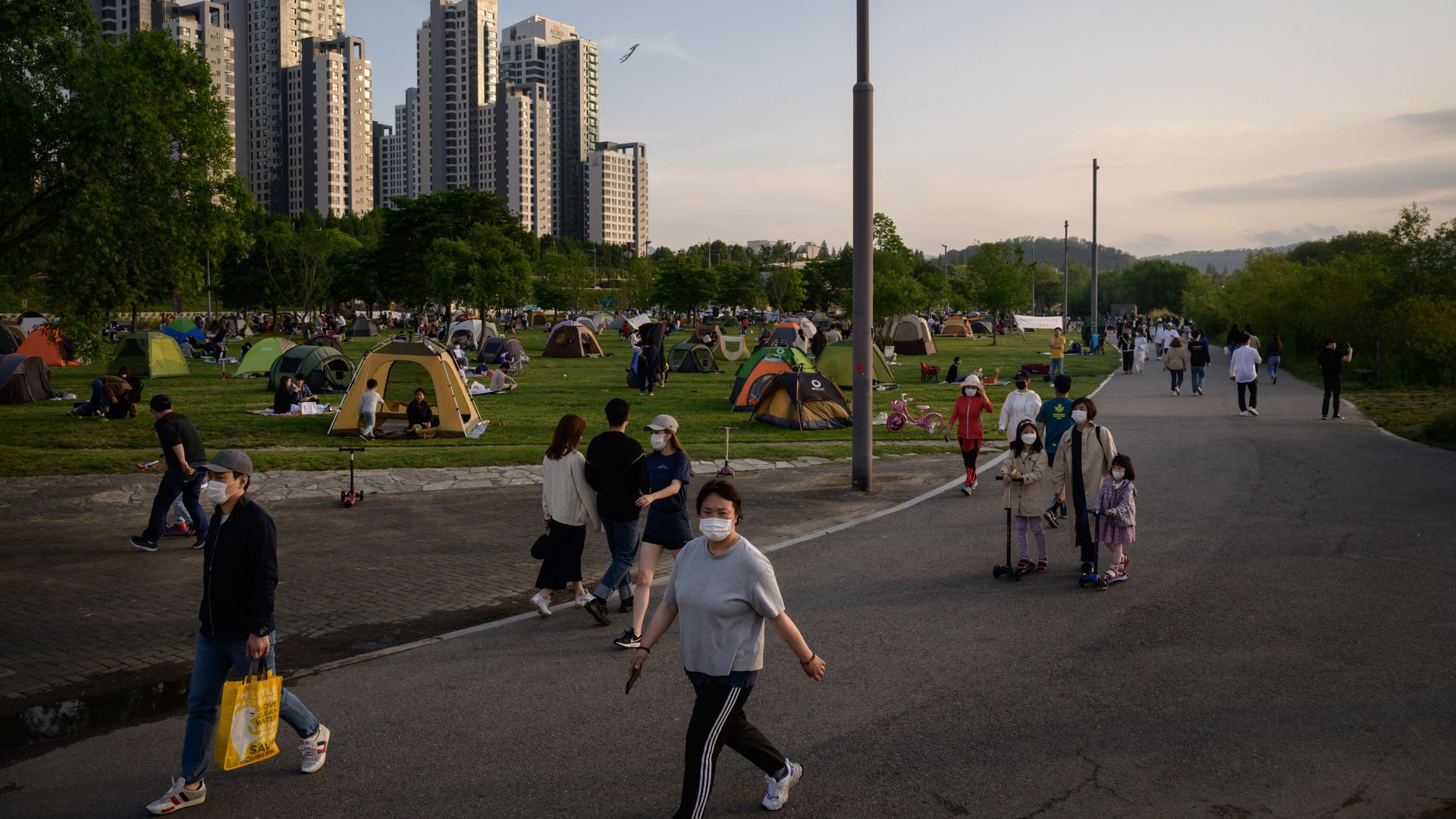South Korea and Taiwan show stifled consumer demand after coronavirus lockdowns
Add Axios as your preferred source to
see more of our stories on Google.

People walking through a park in Seoul on May 24. Photo: Ed Jones/AFP via Getty Images
Looking at the economies of South Korea and Taiwan leads to a discomforting takeaway: "Reopening isn’t going to be an economic cure-all," Matthew C. Klein writes for Barron's.
What it means: "Both countries contained the virus better than the U.S., yet consumers in those countries remain reluctant to spend and venture out," Klein notes.
The state of play: Taiwan, which never shuttered businesses or imposed lockdowns is seeing worsening economic data, with retail and food service spending excluding groceries and fuel in April down 12% from last year and spending at restaurants 23% lower — the steepest declines ever.
- Cellphone location data from Google shows Taiwanese consumers were about as unlikely to visit "retail and recreation" venues in May as they were in April, even though they did venture out to such locations at far greater rates than Americans or Europeans under lockdown.
- South Korea did have a particularly harsh COVID-19 outbreak and was able to contain it through widespread testing and early quarantine measures.
- However, the latest monthly data show passenger rail, hotels and “arts, sports and recreation related services” were all down by half in April compared to January, with personal services, restaurants, bars, movie studios, and passenger land transport services all down by about 25%.
Yes, but: Economic data is steadily improving in China, which was the first country to implement widespread lockdowns.
- Private data provider Caixin's Chinese services PMI rose to 55.0 in May, from 44.4 in April, beating consensus estimates of 47.3. It was the first return to expansion for the survey since January.
- Caixin's reading on the manufacturing industry was similarly strong, showing production recovering faster than demand, and the rate of expansion for output rising at the fastest pace since January 2011.
The bottom line: The U.S. stock market's rally has largely been underpinned by expectations for a speedy economic recovery.
- "The hope is that what we’ve seen with China is playing out in Europe, and there will eventually be follow-through in the U.S. once the virus is under containment," Jeffrey Kleintop, chief global investment strategist at Charles Schwab, told the Wall Street Journal.
Go deeper: World coronavirus updates
